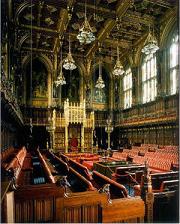 Leaving aside the metaphysics and theology and concentrating instead on people, as in human beings and all their joy and pain, the issue of suicide is sad because there IS an answer and many people have seen it work many times.
Leaving aside the metaphysics and theology and concentrating instead on people, as in human beings and all their joy and pain, the issue of suicide is sad because there IS an answer and many people have seen it work many times.A doctor doesn't treat symptoms - he treats root causes and that's the only way to go. The drugs and the electro are cosmetic fixes. A huge amount of the trouble is when we put ourselves at the centre of ourselves and our needs above all.
This is the sun and the stars revolving around the earth. Even a rationalist will say that's a rubbish model.
This manifests itself in an obstinate drive to solve all problems ourselves and we can't because we simply don't have all the equipment [unless you're a superman - I'm not].
You know the rest - despair, drinking, bleak music and so on. Absence of hope is what it comes down to and according to Dante, there's one particular entity who has this even written over his gateway.
Medically, there are people predisposed to despair and suicide. I may be one of these. Plus there is life experience to take into account. But even medical science knows of many "miracle" cures, so many that perhaps it should start to take the phenomenon seriously.
The human physionomy and brain can do remarkable things if it's operating in the right way. This is all JC was saying in pushing the faith, hope and charity thing so hard. It stands to reason. Faith, hope and charity regulate the brain and allow little time for despondency.
Putting family, friends and unfortunates first is a first step and no one is saying that's the preserve of the Christian alone. That would be idiocy to suggest that. It's just a first step to a sense of self-worth.
It doesn't change the curmudgeonliness, the cutting tongue [or keyboard] or life's day to day issues. It just makes it so much easier to cope if one is outward, rather than inward looking.
And this is not my character. I'm a selfish mother, with a caustic tongue. Any niceness you see in me was put there.
Which brings us to the next thing. There are no free lunches.
If you want comfort in your troubles, you have to pay for it. Standard business principle. The 3rd person in the Trinity is the good oil - it works in the same way those without a Ferrari can't appreciate true speed and safety until they've driven one.
But there's a price. You have to believe it can work first. It's the Peter walking on water principle. Believe, you walk on water, you soar to the clouds. Lose faith and you sink. Who cares whether it was allegorical or if it happened?
In my situation, I would say all my troubles came from stubbornly insisting on my own way. On the occasions I throw up the hands and say: "OK, OK, what do you want me to do then?", immediately things fall in line.
Things start to gel instead of jarr.
In a nutshell, we're going to come a cropper if we let this manic drive for self-aggrandisement consume us [even if we insist it's for the good of our family]. Doors close here and there, opportunities present themselves less and less and so on.
Go the other way though and it's simply good business practice.
That's all I wanted to say.









